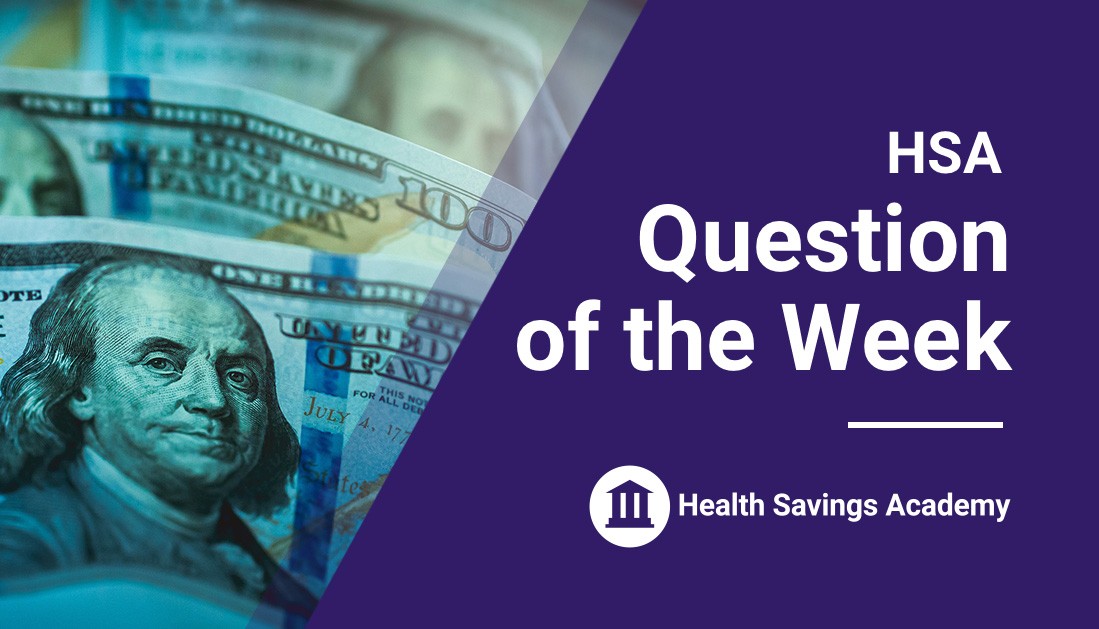
Can Your Family Double-up on HSA Family Contributions?
This column is an excerpt (Question 52) from a book to be published later this year to help guide account owners, employers, benefits managers, and administrators understand Health Savings Account compliance issues. The format consists of a common question, an explanation in easy-to-understand English (often with an appropriate example), and citation from government documents to support the answer. The book is designed to inform. It is not a legal document, and the contents should not be construed as legal advice.
Question: I cover my adult child on my HSA-qualified plan. She’s under age 26 and no longer my tax dependent. Can she open her own Health Savings Account? If so, how much can she contribute, and do her deposits offset how much I can contribute to my account?
Answer: Health Savings Account eligibility is determined at an individual level, and it’s common for more than one person on the medical plan to meet the eligibility requirements to open and fund an account. Let’s make sure your child is HSA-eligible:
Is she covered on an HSA-qualified plan? Yes.
Does she have any disqualifying coverage? You must determine the answer. Her participation in her company’s general Health FSA, for example, would disqualify her from funding her own Health Savings Account. Let’s assume that she doesn’t have disqualifying coverage.
Can another taxpayer claim her as a tax dependent? You, as her parent, are probably the only candidate, and you’ve indicated that she no longer meets the definition of a tax dependent under Section 152 of the tax code.
If the answers to these questions are yes, no, and no, she’s eligible to open and fund her own Health Savings Account. How much can she contribute? Many attorneys, account providers, and benefits advisors believe that she can contribute up to the statutory contribution limit for a family contract, independent of how much you contribute to your Health Savings Account. See Question 51 for a detailed review of the logic behind this conclusion.
Congress didn’t address this situation in legislation and the Internal Revenue Service hasn’t issued formal guidance on this question. You would be wise to discuss this issue with your legal, financial, or tax counsel to determine the risks and rewards associated with different approaches to funding an account owned by a child who’s not a tax dependent.
Your adult child may not qualify as a tax dependent but not have sufficient income to contribute to a Health Savings Account. In that case, you – or anyone else – can contribute to her account. She’s entitled to the tax deduction when anyone but her employer contributes to her Health Savings Account.
Tying this discussion together with Question 51, it’s possible that a family could have three or more members covered on the same contract who each can contribute up to $8,300 in 2024 plus a $1,000 catch-up contribution if age 55 or older. That’s a lot of family members’ income sheltered from taxes in exchange for enrolling in a plan with a deductible as low as $3,200 in 2023 (although most plans set a higher figure).
Tips
You’re not alone if you have a child or children under age 26 who don’t qualify as your tax dependents but haven’t accumulated sufficient savings or don’t earn a high enough income to pay a $1,000 or $4,000 medical bill painlessly. They may need your help. You can contribute directly to your child’s Health Savings Account or give the child funds to contribute (see Question 46). In either case, your child claims the tax deduction for this contribution. As a result, you may want to give the child less than the amount that she owes and tell her that she can fill the gap by negotiating a prompt-pay discount or applying her tax savings to the bill.
Unfortunately, in most cases, the family is a net tax loser in this scenario. Parents typically earn more than their young adult children (especially those who can’t pay their medical bills without parental assistance) and thus have higher marginal tax rates applied to their income. If the child’s federal marginal tax rate is 12% and the parent’s is 24%, then a parent’s $2,000 contribution to a child’s account results in the child’s saving $240 on her federal income taxes. In contrast, the parent would receive a $480 deduction for the same contribution to his own Health Savings Account. But at least someone in the family can save some money in taxes, thus stretching the value of the contribution.
See the citation from the notes of an American Bar Association subcommittee meeting in 2010 in Question 51 to learn more about this conclusion.
IRS Notice 2004-2:
Q-18. What is the tax treatment of contributions made by a family member on behalf of an eligible individual?
A-18. Contributions made by a family member on behalf of an eligible individual to an HSA (which are subject to the limits described in A-12) are deductible by the eligible individual in computing adjusted gross income. The contributions are deductible whether or not the eligible individual itemizes deductions. An individual who may be claimed as a dependent on another person’s tax return is not an eligible individual and may not deduct contributions to an HSA.
#HSAQuestionoftheWeek #HSAQuestion #HSAWednesdayWisdom #HSAMondayMythbuster #HealthSavingsAccount #HSA #TaxPerfect #ICHRAinsights #ICHRA #WilliamGStuart #HSAguru #HealthSavingsAcademy
The content of this column is informational only. It is not intended, nor should the reader construe the content, as legal advice. Please consult your personal legal, tax, or financial counsel for information about how this information applies to you or your entity.
HSA Question of the Week is published every week, alternating every other Wednesday with HSA Wednesday Wisdom and every other Monday with HSA Monday Mythbuster.